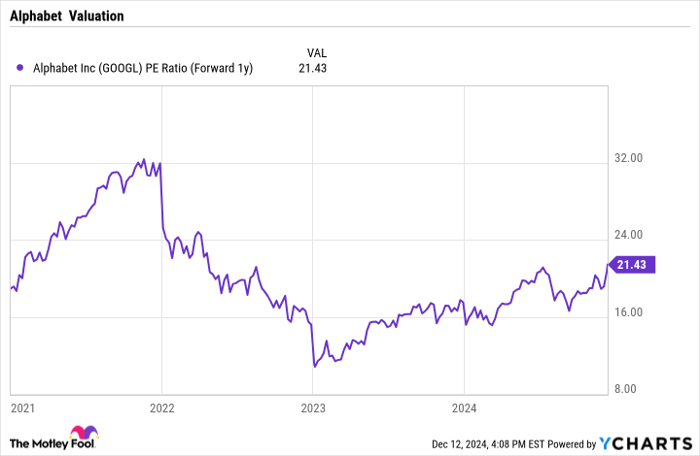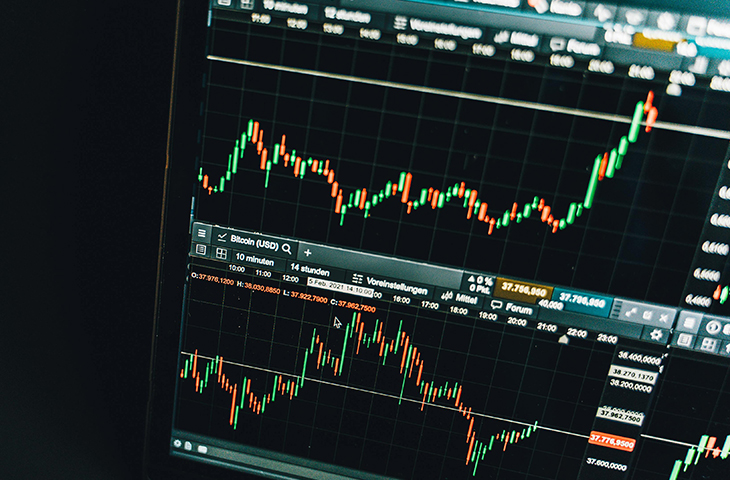Is Alphabet's Quantum Computing Chip A Game Changer For The Stock?

Alphabet (NASDAQ: GOOGL) (NASDAQ: GOOG) shares got a nice lift after the company unveiled a new quantum computing chip. The company's stock had been struggling in the second half of the year after peaking in July, but this news helped send the stock back to all-time highs. The stock is now up about 38% on the year as of this writing.
Let's take a look at the announcement and whether this new quantum computing chip could be a game changer for the stock.
Quantum computing breakthrough
Alphabet's new chip, dubbed Willow, is being touted as a new breakthrough in quantum computing, which is an emerging technology that uses the laws of quantum mechanics to solve problems much more quickly than traditional computers.
The technology uses quantum bits, or qubits, as opposed to computers that use bits. Bits are confined to either being a single value, 0 or 1, while qubits can be in superposition, which in simplistic terms is being in multiple states at the same time, although some sources say it would be better to use a histogram analogy. Regardless, it is superposition that allows quantum algorithms to process information in a fraction of the time as current computers.
In a blog post, Alphabet said the chip could solve a problem that would normally take a computer 10 septillion -- or 10,000,000,000,000,000,000,000,000 years -- to complete. That's a lot of zeros.
One of the biggest issues with quantum computing is that it is error-prone, especially with the more qubits it uses. Alphabet appears to be addressing this issue, saying Willow can exponentially reduce errors as it scales up using more qubits.
This achievement is called being "below threshold," with the company noting that the only way to show real progress on error correction is for the chip to be able to "drive errors down while scaling up the number of qubits." Willow is composed of 105 qubits.
Despite the breakthrough, quantum computing has no known real-life applications at the moment. The company has been working on Willow for 12 years, but it is still many years away from commercial use. The head of Google's Quantum AI lab told the BBC that a quantum chip would not be able to perform commercial applications by the end of the decade, while other experts have chimed in, saying it could be about 10 years away.
Image source: Getty Images.
Why is Willow important for Alphabet's stock?
Neither Willow nor quantum computing will have any positive impact on Alphabet's top or bottom lines in the near future. That said, this was nonetheless an important announcement from the company and for its stock.
What this announcement shows is that Alphabet is at the forefront of what could be the next great technology after artificial intelligence (AI). AI was a pie-in-the-sky technology for a long time before ChatGPT brought it into the mainstream, and suddenly it has become a huge advancement and earnings driver for companies.
Meanwhile, Alphabet appears to have a huge lead in the technology, even if its applications are far away. Ultimately, quantum computing could have massive implications for things like AI, cybersecurity, and even Bitcoin in the future.
What's important for Alphabet and its investors today is that this shows a company at the lead of innovation. There has been a narrative that Alphabet has been behind in innovation, but helping solve an issue that has hampered quantum computing over the last 30 years helps flip that script.
Right now, an investment in Alphabet gives investors the world's top search company, a leading ad network, one of the big three cloud computing companies, one of the most profitable streaming platforms (YouTube), as well as bets on its apparent technological leads in self-driving vehicles (Waymo) and quantum computing. That's quite a nice assortment of established and emerging businesses.
Meanwhile, it remains one the cheapest big megatech stocks, recently trading a forward price-to-earnings ratio (P/E) of less than 21.5.
GOOGL PE Ratio (Forward 1y) data by YCharts
The fundamentals of Alphabet will not change with Willow, but the fact of the matter is that they have been pretty darn good already, with revenue jumping 15% year over year to $88.27 billion last quarter and adjusted earnings per share (EPS) soaring 37% to $2.12. However, Willow helps shift investor perception. Even after the rally, the stock looks like a solid option for investors to consider buying.
Don’t miss this second chance at a potentially lucrative opportunity
Ever feel like you missed the boat in buying the most successful stocks? Then you’ll want to hear this.
On rare occasions, our expert team of analysts issues a “Double Down” stock recommendation for companies that they think are about to pop. If you’re worried you’ve already missed your chance to invest, now is the best time to buy before it’s too late. And the numbers speak for themselves:
- Nvidia: if you invested $1,000 when we doubled down in 2009, you’d have $348,112!*
- Apple: if you invested $1,000 when we doubled down in 2008, you’d have $46,992!*
- Netflix: if you invested $1,000 when we doubled down in 2004, you’d have $495,539!*
Right now, we’re issuing “Double Down” alerts for three incredible companies, and there may not be another chance like this anytime soon.
*Stock Advisor returns as of December 9, 2024
Suzanne Frey, an executive at Alphabet, is a member of The Motley Fool's board of directors. Geoffrey Seiler has positions in Alphabet. The Motley Fool has positions in and recommends Alphabet. The Motley Fool has a disclosure policy.



